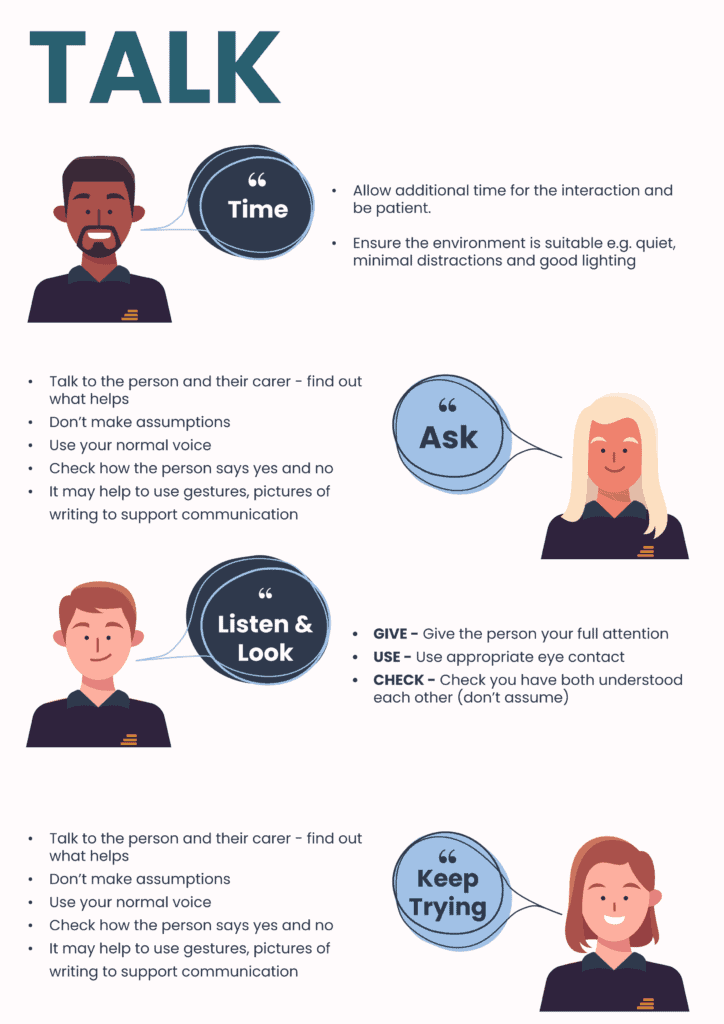June marked Aphasia Awareness Month which is dedicated to raising awareness and understanding of aphasia. Awareness is vital to ensuring individuals with aphasia do not feel alone, isolated or misunderstood.
Aphasia is an acquired communication disorder that impairs a person's ability to process and / or use language. It does not affect intelligence.
Aphasia can impact an individual’s expression or understanding of language, impacting speech, the ability to read, write and use numbers. It can also impact every day tasks, such as the ability to tell the time or managing money.
Aphasia varies greatly from person to person, with cases ranging from mild, moderate to severe. It results from damage to the brain’s language centres, which may be caused by a stroke, head injury, infections and inflammations of the brain, injury/tumours to the brain or progressive neurological conditions.
Living with aphasia can be life-altering, profoundly impacting everyday activities such as having a conversation, answering the phone or watching television. These tasks can become incredibly difficult, frustrating and anxiety-inducing.
Speech and language therapy is the primary treatment for people living with aphasia. Speech and Language Therapists (SLTs) play a key role in supporting individuals with aphasia to communicate or develop alternative ways to support communication.
It is estimated that more than 350,000 people live with aphasia in the UK (Stroke Association, 2024).
Communication Access UK
STEPS Rehabilitation is proud to be accredited with Communication Access UK. Communication Access UK, led by the Royal College of Speech and Language Therapists in collaboration with various charities, is an initiative dedicated to enhancing support for individuals with communication difficulties. By completing the mandatory Communication Access training annually, our staff are equipped with an awareness and skills to support individuals with communication challenges, ensuring they can express themselves and be understood.
At STEPS Rehabilitation, our Speech and Language Therapy team works closely with clients, staff and their families to provide optimal support during their time with us, ensuring equality of access and opportunity.
Remember to think TALK:

